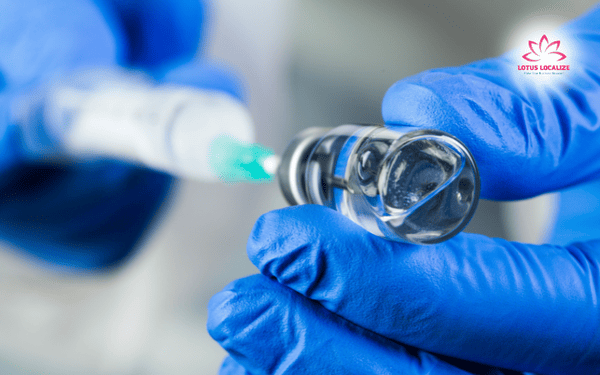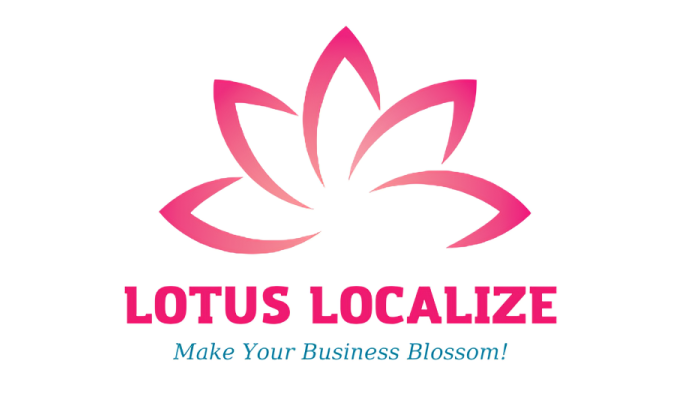
Why can clinical trial translation unlock global potential in medical research?
In an era where medical research transcends borders, clinical trial translation plays a pivotal role in ensuring that groundbreaking treatments reach diverse populations. From regulatory compliance to patient-centric communication, the importance of high-quality translation cannot be overstated. Whether you’re navigating the complexities of informed consent forms or global regulatory documentation, understanding the nuances of clinical trial translation is critical for the success of any healthcare research initiative. This article explores the essential aspects of clinical trial translation, addressing its challenges, best practices, and its future impact on global healthcare.
Decoding the essence of clinical trial translation
Clinical trial translation plays a pivotal role in ensuring the success of medical research on a global scale. By providing clear and accurate communication across linguistic and cultural boundaries, clinical trial translation serves as the bridge that connects researchers, regulatory bodies, and participants from different parts of the world.
- Accurate communication: Precision in translating clinical trial documents is crucial for conveying essential medical information accurately. Participants must understand all aspects of the trial, including its objectives, procedures, and potential risks. Misunderstandings could compromise the integrity of the trial or put participants at risk.

- Integrity of information: Maintaining the integrity of clinical trial documents is vital. Accurate translations ensure that the meaning, details, and nuances of medical terminology are preserved. This ensures that participants in diverse regions can make informed decisions about their involvement based on the same comprehensive information.
- Inclusive access: Clinical trial translation ensures that medical research is accessible to participants from various cultural and linguistic backgrounds. This inclusivity promotes fairness and safeguards participants’ rights, allowing them to fully engage with the trial and contribute to the generation of global health data.
In essence, clinical trial translation is a cornerstone of global medical research. It guarantees that information is communicated accurately and that every participant, regardless of language or culture, has an equal opportunity to contribute to and benefit from groundbreaking studies. Its importance cannot be overstated in ensuring that trials are both ethically conducted and globally relevant.
Read more: Why pharma translation matters in today’s global healthcare landscape
The role of clinical trial translation in medical research
Clinical trial translation is a fundamental component in ensuring that medical breakthroughs reach and benefit diverse populations worldwide. It plays a crucial role in enabling clear and effective communication, building trust between stakeholders, and ensuring compliance with global regulatory standards. In an increasingly interconnected world, clinical trial translation ensures that research is both inclusive and impactful, leading to successful outcomes for patients across different regions.
Connecting global communities through research
Clinical trials often involve participants from varied linguistic and cultural backgrounds. Translation helps ensure that research is accessible and representative of these diverse communities.
- Evaluates treatments across diverse populations: Clinical trials must test new treatments on a broad range of populations to evaluate their safety and effectiveness. Translation ensures that trials are conducted with linguistic and cultural diversity, allowing researchers to gather data from all segments of society. This inclusivity strengthens the generalizability of the research findings.

- Generates robust, inclusive data: Translating clinical trial documents and materials into multiple languages ensures that data collected reflects the experiences of different population groups. This inclusive approach results in more comprehensive, accurate data that can be applied universally, benefiting a wide range of patient demographics.
- Strengthens credibility of research: A clinical trial that is accessible to a global audience lends credibility to the research. By including participants from multiple regions and linguistic backgrounds, the validity of the study results is significantly enhanced, making the findings more relevant and applicable worldwide.
Building trust through effective communication
Clear, accurate translation of clinical trial materials is key to building and maintaining trust between researchers, healthcare providers, and participants.
- Ensures transparency: Translating key documents like informed consent forms, patient information brochures, and trial protocols into the native languages of participants ensures transparency throughout the study. Participants who clearly understand the trial’s purpose, risks, and procedures are more likely to trust the process and stay committed to the research.

- Fosters respect and inclusion: Effective communication via accurate translation demonstrates respect for participants’ language and culture. When trial materials are translated thoughtfully, it shows that the researchers value participants’ autonomy and cultural perspectives, which fosters a sense of inclusion and respect.
- Increases participant confidence: Providing materials in a language participants are comfortable with increases their confidence in the trial. Participants who are confident in their understanding of the trial’s procedures are more likely to stay engaged and adhere to the study’s requirements, leading to better retention and more reliable results.
Complying with international standards
Compliance with international regulatory standards is crucial for the acceptance and approval of clinical trial data. Clinical trial translation ensures that all documentation meets the necessary guidelines and requirements set by regulatory authorities worldwide.
- Meets regulatory requirements: Regulatory bodies such as the FDA, EMA, and others require that clinical trial documents, including protocols, investigator brochures, and informed consent forms, be available in multiple languages to meet the needs of international participants. Accurate translations ensure that all documentation adheres to these regulations, helping the trial stay compliant and legally sound.

- Speeds up trial approval: High-quality translations can streamline the regulatory submission process by making sure that documents are correctly prepared and meet all required standards. This helps accelerate the approval process, ensuring faster access to new treatments for patients worldwide.
- Facilitates global market access: Clinical trial translation ensures that research findings and related documents are accessible to an international audience. This makes it easier for regulatory bodies in different countries to review and approve new treatments, enabling quicker market access and expanding the availability of promising treatments across borders.
Clinical trial translation is essential for ensuring that medical research is inclusive, transparent, and compliant with global standards. By connecting diverse populations, fostering trust, and meeting regulatory demands, it ensures that new treatments can reach and benefit patients worldwide. This comprehensive approach not only enhances the integrity and validity of clinical trials but also accelerates the process of making life-changing treatments accessible to people across the globe.
Essential documents in clinical trial translation
Clinical trial translation is essential for ensuring the accuracy and integrity of key documents. Accurate translations of patient-related materials, regulatory submissions, and technical documentation help meet ethical, legal, and compliance standards, ensuring smooth trials across borders.
- Patient-related materials:
- Includes informed consent forms, patient information leaflets, and questionnaires.
- Translation ensures that patients fully understand their involvement, rights, and potential risks, enabling them to make informed decisions.

- Regulatory submissions:
- Documents like protocols, investigator brochures, and clinical study reports are crucial for legal compliance.
- High-quality translations ensure these documents meet the stringent requirements of regulatory authorities in different countries, facilitating smoother approvals and market access.
- Technical documentation:
- Case report forms, standard operating procedures (SOPs), and data monitoring reports are vital for maintaining trial accuracy.
- Translating these materials ensures consistency across international teams and accurate data collection, crucial for reliable results.
Accurate clinical trial translation of essential documents ensures that trials run smoothly, comply with legal standards, and maintain participant safety. By translating patient-related materials, regulatory submissions, and technical documentation, trials can be conducted ethically and efficiently across diverse regions.
Overcoming challenges in clinical trial translation
Clinical trial translation plays a crucial role in ensuring the success of global research efforts. However, the process is not without its challenges. Translators must navigate technical terminology, varying regulations, and cultural differences to ensure accurate and effective communication across multiple regions.
- Complex medical terminology:
- Medical documents are filled with specialized terms and jargon.
- Translators must possess subject-matter expertise to ensure accuracy and clarity while ensuring that the terminology is understandable to a diverse audience.

- Navigating regulatory differences:
- Different countries have distinct regulatory frameworks for clinical trials.
- Translators need to be familiar with these regional regulations to ensure compliance while maintaining consistency in the documentation across international boundaries.
- Ensuring cultural sensitivity:
- Translations must go beyond linguistic accuracy to respect local cultural norms and values.
- Misunderstandings or misinterpretations can lead to patient mistrust or non-compliance, making cultural competence essential in maintaining the ethical integrity of the trial.
Overcoming the challenges in clinical trial translation is key to ensuring the ethical, accurate, and efficient conduct of global research. Specialized expertise in medical terminology, regulatory frameworks, and cultural sensitivity is essential to maintain the integrity and success of clinical trials across different regions.
Read more: What is tep? Discover the power of the tep process in translation quality
Effective approaches in clinical trial translation
Clinical trial translation is a critical component of ensuring the success of global medical research. With the increasing diversity of trial participants, languages, and regulatory requirements, following effective approaches and staying ahead of emerging trends is essential for maintaining high standards in clinical trials. These strategies will ensure that translations meet ethical, legal, and scientific expectations, while contributing to the success of clinical research worldwide.

Ensuring the success of clinical trial translations requires adherence to best practices. These strategies help maintain the accuracy, efficiency, and consistency needed to meet ethical, regulatory, and scientific standards throughout the trial process.
- Partnering with specialized providers: Working with translation agencies that specialize in clinical trials ensures access to linguists with medical and regulatory expertise, which helps minimize errors and enhance document reliability.
- Leveraging technology: Tools like translation memory and terminology management systems streamline the translation process, ensuring consistency across large volumes of text while reducing costs and turnaround times.
- Implementing rigorous quality control: Quality assurance methods, such as back translation and peer review, help identify discrepancies and maintain high standards throughout the project lifecycle.
By following these best practices—partnering with specialized providers, leveraging cutting-edge technology, and implementing strict quality control—clinical trial translations can be streamlined and made more reliable. This results in faster, more accurate trials with better outcomes.
Looking ahead: The future of clinical trial translation
As clinical trials evolve with advancements in medicine and research methods, translation needs must adapt to stay in sync. Future trends will require innovative strategies and technologies to meet the increasing complexity of global research trials.
- Embracing AI and automation: Artificial intelligence tools can revolutionize clinical trial translation by speeding up workflows, reducing costs, and improving consistency. However, human expertise remains necessary to ensure nuanced and culturally sensitive translations.

- Addressing growing trial complexity: The rise of decentralized trials and personalized medicine presents new challenges in clinical trial translation. As trials become more complex, multilingual solutions must be integrated seamlessly into these evolving models.
- Strengthening global collaboration: With more international research collaborations, the demand for high-quality clinical trial translations will continue to rise. Investments in advanced translation tools and professional development will be essential for maintaining consistency and regulatory compliance across borders.
The future of clinical trial translation will be shaped by emerging technologies, evolving trial structures, and a need for greater global cooperation. By embracing AI, addressing new trial complexities, and fostering stronger international collaboration, clinical trial translation will be better equipped to meet the challenges of modern medical research.
Clinical trial translation is the linchpin of global medical research, ensuring equitable access, regulatory compliance, and patient trust. By overcoming linguistic and cultural barriers, it paves the way for transformative healthcare innovations that benefit humanity as a whole.
If you’re looking to enhance your clinical trial’s global reach, partnering with a professional translation service ensures accuracy, compliance, and success.
Contact Lotus Localize today to learn how our expertise can support your clinical trial translation needs.
If you have any questions or need assistance with translation services for many industries: life science translation, education translation, technology translation, financial translation, marketing translation, manufacturing translation, government translation,… and interpretation services please contact Lotus Localize immediately at 0866 224 968 or visit the website: lotus-localize.com for advice on the best solutions!
QUALITY PROMISE
Lotus Localize offers consistent, high-quality service delivery in all customer engagements. Our in-house translators and staff adhere to well-established business processes, allowing us to communicate properly, deliver on time, and surpass client expectations.












